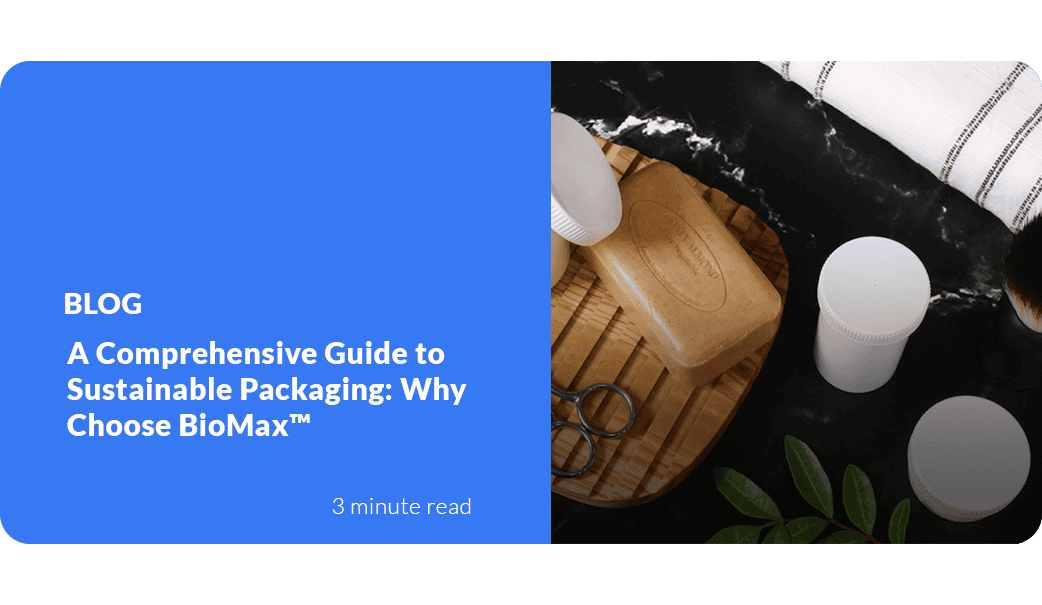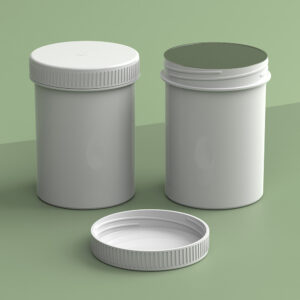Uncategorized
A Comprehensive Guide to Sustainable Packaging: Why Choose BioMax™
As environmental concerns become increasingly pressing, businesses and consumers alike are seeking sustainable packaging solutions that minimize environmental impact without sacrificing functionality or quality. BioMax™ plant-based plastic containers offer a compelling answer to this demand, providing a versatile, eco-friendly alternative to traditional fossil fuel-based plastics. In this comprehensive guide, we’ll explore the importance of sustainable packaging and why BioMax™ containers stand out as a top choice.
The Importance of Sustainable Packaging
Environmental Impact:
Traditional plastics are derived from non-renewable fossil fuels and are notorious for their long-lasting environmental impact. They contribute to pollution, greenhouse gas emissions, and harm to wildlife. Sustainable packaging, on the other hand, aims to reduce these negative effects by using renewable resources, lowering carbon footprints, and promoting recyclability.
Consumer Demand
There is a growing consumer demand for eco-friendly products. Today’s consumers are more informed and environmentally conscious, often choosing brands that prioritize sustainability. Businesses that adopt sustainable packaging can enhance their brand image, attract eco-conscious customers, and gain a competitive edge.
Regulatory Pressure
Governments worldwide are implementing stricter regulations on plastic use and waste management. Adopting sustainable packaging solutions like BioMax™ can help businesses stay ahead of regulatory requirements and avoid potential fines or sanctions.
What Makes BioMax™ Containers Sustainable?
Renewable Resources:
BioMax™ containers are made from high-density polyethylene (HDPE) derived from sugarcane. Sugarcane is a renewable resource that can be sustainably harvested, reducing dependence on finite fossil fuels. By using plant-based materials, BioMax™ supports sustainable agricultural practices and lessens the environmental impact associated with raw material extraction.
Lower Carbon Footprint:
The production process for BioMax™ containers involves converting sugarcane into ethanol, which is then transformed into ethylene and polymerized into HDPE. This process is more energy-efficient and produces fewer greenhouse gas emissions compared to the production of traditional plastics. Choosing BioMax™ containers helps mitigate climate change by reducing carbon emissions.
Recyclability:
While BioMax™ containers are not biodegradable, they are designed to be recyclable. Proper recycling of BioMax™ containers supports a circular economy, where materials are continuously repurposed, reducing the need for new raw materials and minimizing plastic waste. Encouraging consumers to recycle these containers is crucial to maximizing their environmental benefits.
Non-Toxic and Safe:
BioMax™ plant-based plastics are free from harmful chemicals such as BPA and phthalates, which are commonly found in traditional plastics. This makes them a safer choice for packaging food, beverages, cosmetics, and pharmaceuticals, ensuring that the contents remain uncontaminated and safe for consumption.
Comparing BioMax™ to Other Sustainable Packaging Options
Biodegradable Plastics:
Biodegradable plastics are designed to break down naturally over time. While they offer benefits in terms of waste reduction, they often require specific conditions to decompose effectively, which are not always available in standard waste management systems. In contrast, BioMax™ containers focus on recyclability, making them a more practical option for many regions with established recycling infrastructure.
Compostable Packaging:
Compostable packaging is intended to decompose into non-toxic components in composting environments. However, similar to biodegradable plastics, compostable materials need specific conditions to break down properly. BioMax™ containers, with their emphasis on recyclability, provide a more consistent and widely applicable sustainable solution.
Glass and Metal:
Glass and metal are highly recyclable and durable, making them excellent sustainable packaging options. However, they are heavier and can be more expensive than plastics, impacting transportation costs and carbon footprints. BioMax™ containers offer a lightweight, cost-effective alternative that combines sustainability with practicality.
Applications of BioMax™ Containers
Food and Beverage Industry:
BioMax™ containers are ideal for storing dry goods, snacks, and other food items. Their airtight seals help maintain freshness, and their non-toxic nature ensures safety. They are also suitable for beverages, providing a sustainable option for bottling and storage.
Cosmetics and Personal Care:
The cosmetics industry can benefit greatly from BioMax™ containers. They are perfect for packaging creams, lotions, powders, and other personal care products. The secure screw-top lids prevent leaks and contamination, while the clear plastic allows for easy product identification.
Pharmaceuticals and Supplements:
BioMax™ containers provide a safe and reliable option for storing medications, vitamins, and supplements. Their durability ensures the integrity of the contents, and the airtight seals protect against moisture and contamination.
Household Products:
From cleaning supplies to DIY materials, BioMax™ containers offer a practical storage solution for various household products. Their robustness and recyclability make them a sustainable choice for everyday use.
Conclusion
Choosing sustainable packaging is crucial for reducing environmental impact, meeting consumer demand, and complying with regulatory pressures. BioMax™ plant-based plastic containers offer a versatile, eco-friendly solution that stands out for its use of renewable resources, lower carbon footprint, recyclability, and safety. By opting for BioMax™ containers, businesses and consumers can make a positive contribution to environmental sustainability without compromising on quality or functionality.
For more information on BioMax™ plant-based plastic screw-top containers, visit our BioMax™ page.


